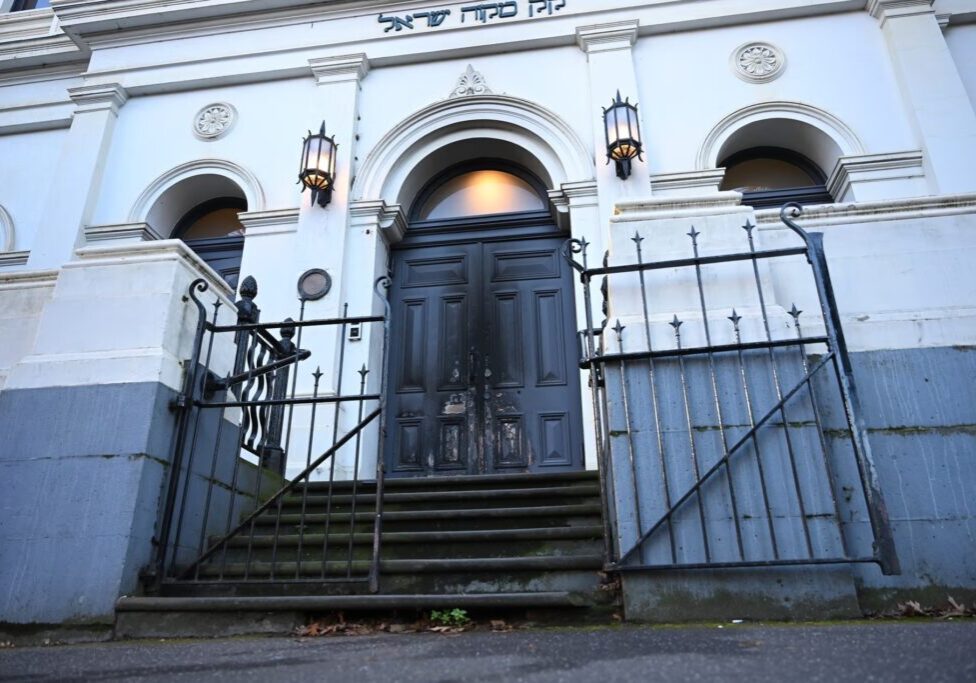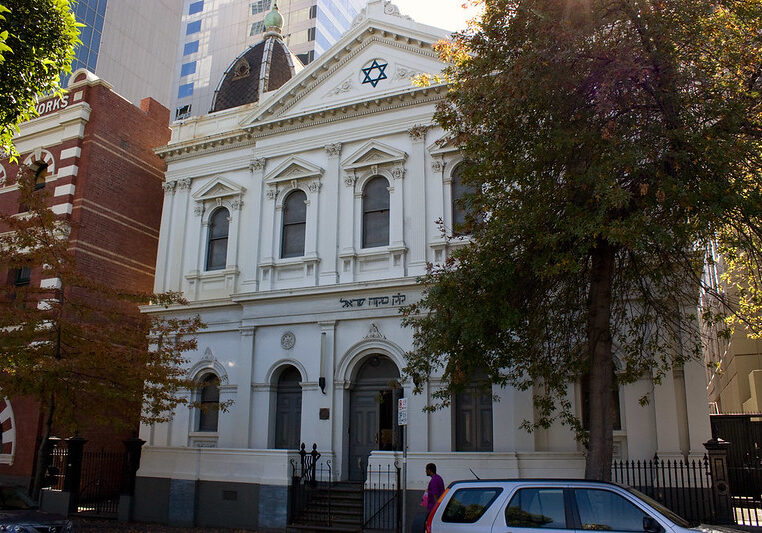Australia/Israel Review, Featured
The world’s loudest silence?
Jul 28, 2020 | Naomi Levin

There is a refrain that is becoming increasingly common in some circles; namely, that Israel’s critics are being silenced in mainstream debates. However, a brief look at recent public debate indicates there is not much substance to this complaint.
There are plenty of prominent critics of Israeli Government policy featuring in Australia’s mainstream press, on social media and in the world’s most-read publications.
A timely case study that can be used to examine whether Israel’s critics are being silenced is the recent debate on Israel’s so-far unfulfilled proposal to extend sovereignty to areas of the West Bank.
In the lead up to the supposed deadline for a decision on this – July 1 – the traditional media and social media were ablaze with commentary, much of it critical of Israel’s proposal. Indeed, after the very salient news and debates around the actions of the Chinese Communist Party, this was probably the second most discussed foreign policy issue in Australia and much of the world.
UK Prime Minister Boris Johnson was published on the front cover of an Israeli newspaper – in Hebrew – calling the proposal “a violation of international law” and flagging that the UK would not recognise any such moves. Australia’s Foreign Minister Marise Payne released a statement raising her “concern” over “possible moves towards the unilateral annexation or change in status of territory on the West Bank”. Her Opposition counterpart Senator Penny Wong declared the Australian Labor Party “opposed” the move and explained the reasons why, including that, in the party’s view, it would “undermine the prospect of a two-state solution [and] violate international law”. Australian Greens leader Adam Bandt also spoke out against the plan.
All of this was covered in the Australian media, as was the call by former Prime Minister Kevin Rudd for the Australian Government to pressure Israel against extending sovereignty, on June 29.
Also reported in Australia were other international criticisms of the plans, such as German Foreign Minister Heiko Maas’ visit to Israel in early June, to warn against extending sovereignty.
Internationally, hundreds of media reports publicised a letter signed by 1,000 European members of parliament opposing the plan.
On the matter of international law, on June 25, the Sydney Morning Herald provided prominent space for Professor Ben Saul from the University of Sydney, a scholar sympathetic to the Palestinian cause, to present his views on the legal aspects of Israel’s proposals. The next day, the same newspaper offered the same space to Professor Gregory Rose from the University of Wollongong to present an alternative case.
ABC Online’s Religion and Ethics page ran a lengthy piece from Palestinian policy adviser Dr. Samah Sabawi on the same topic on July 6. On the radio show and podcast of the same name, presenter Andrew West interviewed the University of Sydney’s Dr. Eyal Mayroz on June 10, who strongly called on the Australian Government to condemn the plan.
ABC TV’s “The World” host Bev O’Connor interviewed New Israel Fund executive director Liam Getreu (June 24) who criticised the plan, telling the program he believed the Israeli proposal undermines a future two-state solution “at almost every level”.
Other ABC interviews with critics of Israeli plans to extend sovereignty ran on June 13, June 29 and July 1. Mainstream newspaper opinion articles condemning the plan also ran in the Age on May 23, the Canberra Times on June 11, the Hobart Mercury on June 22, and the Canberra Times on July 6.
This is on top of the regular print and electronic news stories published across virtually all media platforms in Australia on an almost daily basis, most of which gave space to the views of critics of the plan.
Moreover, all this occurred without Israel ever actually releasing any concrete plans to change the legal situation in the West Bank, a move that now looks less likely than ever.
Yet the idea that Israel’s critics were silenced in this debate was actively promoted by Australian-Palestinian writer Randa Abdel-Fattah, who wrote in the literary journal Meanjin that the failure of her efforts to find a mainstream Australian media outlet to print a statement she had helped pen was “deliberate erasure” and a “concerted strategy of disappearing and silencing Palestine in public discourse.”
Never mind that the statement Abdel-Fattah was trying to get published was quite extreme. It did not simply condemn and oppose any Israeli plans to extend sovereignty to any part of the West Bank, it accused Israel of “ethnic cleansing” and of apartheid and creating “115 bantustans”. It compared Jerusalem to Minneapolis – where George Floyd was recently killed in an act of police violence – as places of “state-sanctioned violence” and presented the current situation between the Israelis and Palestinians as one of colonialism.
Perhaps the reason why the statement was not taken up by editors was because it fell so far outside mainstream opinion – including even that of most of Israel’s persistent mainstream critics.
In the end, Abdel-Fattah and her supporters bought an advertisement in the Age and Sydney Morning Herald on July 18 and an abridged, significantly toned-down version of the original was printed.
The version advertised in the Age and Sydney Morning Herald, merely condemning any extension of sovereignty and calling for the Australian Government to also do so, was quite different to the very extreme statement which the supposed 900 signatories had actually put their name to.
Of the signatories, many were well-known pro-Palestinian activists, but a significant number of those signatories nominated themselves as academics or PhD candidates.
While there is no problem with academics or post-graduate students expressing their opinions by supporting a public statement, recently published research in the United States has found a direct correlation between academic boycotts of Israel and harassment of Jewish university students.
The research, by the AMCHA Initiative, a US NGO which studies and documents antisemitism on university campuses, reported increasing numbers of Jewish university students being impeded from participating in Israel programs, publicly shamed or vilified for any perceived association with Israel, shut-down when trying to express support for Israel and being unfairly treated or excluded due to their perceived association with Israel.
It would be concerning if something similar were to happen on Australian campuses.
This particular statement did not mention boycotts, but Abdel-Fattah is an active and vocal supporter of the Boycott, Divestment and Sanctions Movement (BDS), as are many of the other signatories. Many consider the global BDS movement to be effectively antisemitic, because its leaders seek to discriminate against and ultimately eliminate the world’s only Jewish state, and deny the Jewish people the universal right of self-determination. As a resolution of the German Bundestag passed in May noted, “The pattern of argument and methods of the BDS movement are antisemitic.”
The notion that Israel’s critics are being silenced with respect to their condemnation of Israeli plans to extend sovereignty in the West Bank is unsustainable, as the recent record shows. The Israeli Government’s proposals have been roundly criticised by Australian leaders, international leaders, members of parliament, academics and advocates, and critics have been featured in virtually all major media outlets.
Let’s hope that those who support Israel, especially on university campuses, continue to enjoy the same right and privilege to have their voices heard in debates about Israeli policies and how best to achieve Israeli-Palestinian peace. One gets the impression that, by claiming to be silenced, many supporters of BDS may not be seeking access for their own views, but a privileged position which permits them to exclude or marginalise those who disagree with them.
Tags: Australia, Israel, Media/ Academia






